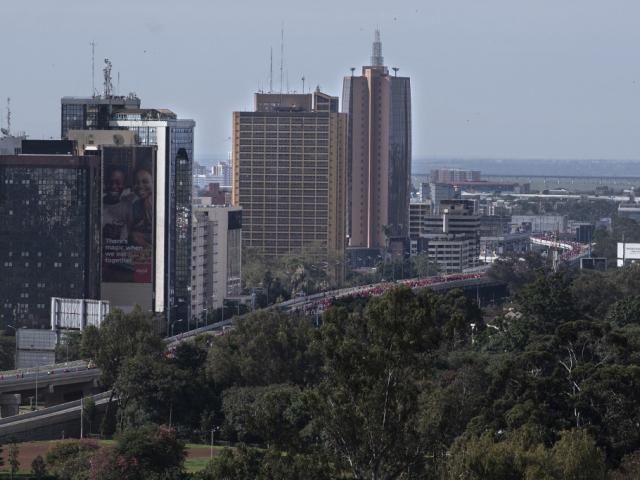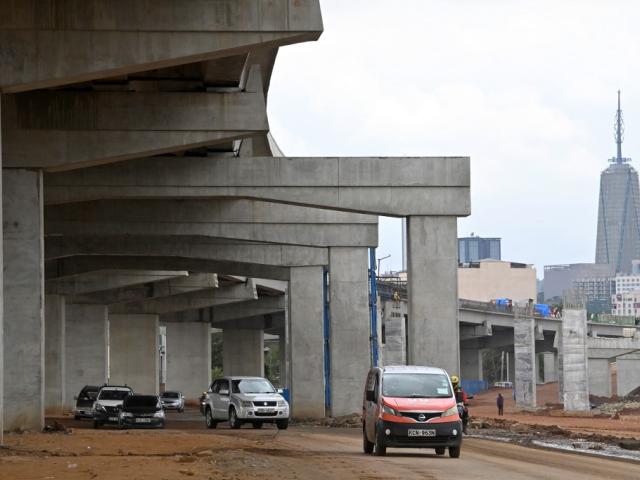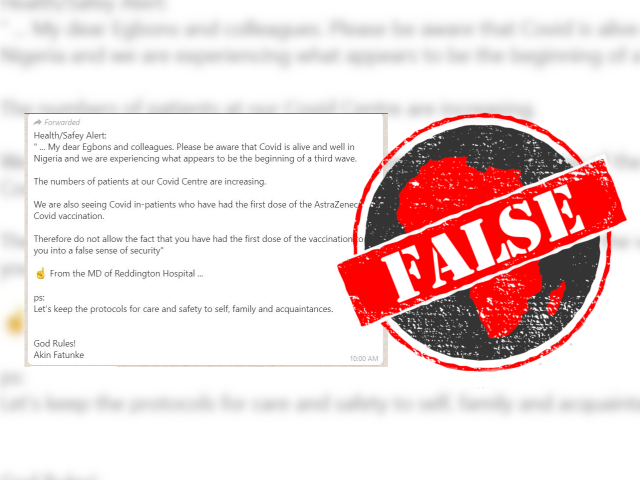IN SHORT: A video circulating on social media shows flooding at the Aga Khan Hospital in Nairobi, Kenya, in 2019. There was no flooding at the Nairobi Hospital or the Aga Khan Hospital in January 2024, as claimed.
On 5 January 2024, Kenya’s capital Nairobi was hit by unrelenting heavy rains, flooding some areas and causing temporary road closures.
Following this, a video circulated on social media showing a flooded health facility, saying it was the Nairobi Hospital, a large private hospital.
A Facebook user posted the video with the caption: “Flooding at Nairobi hospital. Weuh!”
Another user’s caption reads: “It took the intervention of Bedridden patients to clean up the water at Nairobi Hospital due to flooding despite their conditions, they feared they would be swept by water if they continued sleeping there watching volumes of water increase.”
The video was also posted on TikTok with the same claim.
Since October 2023, heavy rains in Kenya have led to severe flooding, hundreds of deaths and thousands of homes washed away.
Spreading such information about a flooded hospital can cause panic among the public, especially those who have patients or know staff there. People may also avoid seeking medical care when they need it, fearing that the hospital will not be operational or safe.
But was this video taken at Nairobi Hospital as claimed? We checked.

‘Misleading and false’
On 6 January 2024, in a statement posted on their X account, a spokesperson for the hospital denied claims that the video was taken on their premises.
“This is to bring to the attention of our stakeholders and the public of a video showing a flooded health facility circulating on various digital platforms being implied to be a scene at The Nairobi Hospital,” the statement said.
“There is no such a scenario in our facilities, and all our operations are running smoothly despite the rains that pounded Nairobi on Friday, 5th January 2024. Any purported association of the video with The Nairobi Hospital is therefore misleading and false.”
Similar video, different location
The same video also circulated on social media, claiming to show flooding at the Aga Khan Hospital, another major hospital in the capital, on 5 January.
One such post attracted nearly 8,000 views.
The videos making this version of the claim have also been posted on TikTok here and here, and on YouTube here and here.
Video taken in 2019
Google reverse image search led us to a photo showing a flooded Aga Khan hospital in November 2019.
A photo from the video was shared by the hospital on its official X (then Twitter) account that month.
“Normal services resume @akuhnairobi after floods. Situation before the floods and After, and the Team involved in responding to the emergency including the Nairobi County Fire and Emergency response led by H. E Governor Mike Sonko,” the post reads.
The video shows a flooded Aga Khan Hospital in Nairobi, but it is from over four years ago.
Republish our content for free
For publishers: what to do if your post is rated false
A fact-checker has rated your Facebook or Instagram post as “false”, “altered”, “partly false” or “missing context”. This could have serious consequences. What do you do?
Click on our guide for the steps you should follow.
Publishers guideAfrica Check teams up with Facebook
Africa Check is a partner in Meta's third-party fact-checking programme to help stop the spread of false information on social media.
The content we rate as “false” will be downgraded on Facebook and Instagram. This means fewer people will see it.
You can also help identify false information on Facebook. This guide explains how.





Add new comment